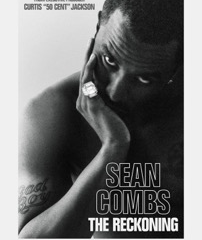Entertainment
Wrongfully Accused? Harvey Weinstein’s Plea for Fairness and Truth
In a rare and revealing on-camera interview, Harvey Weinstein, once a titan of Hollywood, sits down with Candace Owens to break his silence following the overturning of his New York conviction. Weinstein, who became the central figure in the #MeToo movement, claims he is the victim of a miscarriage of justice, insisting he is “wrongfully accused.” In this candid conversation, Weinstein reflects on his fall from grace, the role of the media, the complexities of his relationships, and his ongoing fight for what he calls “fairness and truth.”
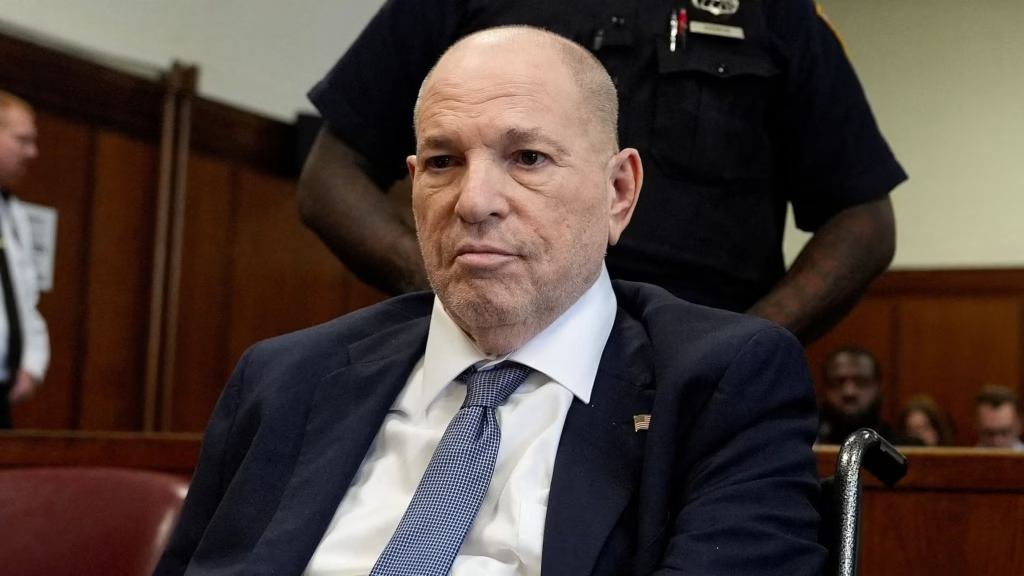
Weinstein’s Appeal: “I Am Not Angry, But Angry at the System”
Weinstein opens the interview with a measured tone, expressing gratitude for the opportunity to speak but making clear his frustration with the legal system. “I’m not angry, but I’m angry at the system,” he says, emphasizing that his conviction was overturned and that he is currently awaiting retrial. He draws a distinction between personal failings and criminal acts, admitting to “terrible mistakes” in his personal life—cheating on his wife, hurting family and friends—but vehemently denying the criminal charges against him.
“I did not commit these crimes. I swear that before God and the people watching now and on my family. I’m wrongfully accused. But justice has to know the difference between what is immoral and what is illegal.”
The Media and the Court of Public Opinion
Weinstein is forthright about his belief that the media played a pivotal role in shaping public perception and prejudicing his case. He thanks Candace Owens and podcasters like Joe Rogan for giving him a platform, contrasting their approach with what he sees as the mainstream media’s rush to judgment.
“The media doesn’t favor me… the mainstream media uses every opportunity to discredit me. But I speak for innocent people—justice has to matter. Evidence has to matter.”
He laments the lack of support from former friends and colleagues, attributing their silence to a fear of being “canceled.” Weinstein describes the atmosphere as a “witch hunt,” where even those who might have supported him were too afraid to speak out.
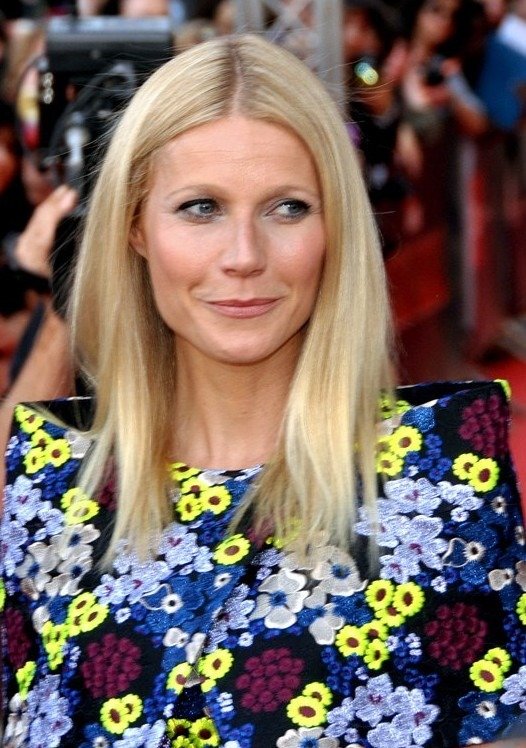
High-Profile Accusations and Weinstein’s Response
The interview touches on specific allegations, most notably those made by Gwyneth Paltrow. Weinstein acknowledges making a pass at Paltrow but denies any abusive behavior, offering his own account of their professional relationship and the incident in question. He points to years of successful collaboration and public displays of friendship as evidence that the relationship was not as toxic as later described.
“I definitely made a pass, I guess. You could call it that. But that was the sum total of that situation… Now I heard, you know, that she thought the relationship was abusive. Anybody who was there who witnessed that relationship—it just turned into total friends.”
The #MeToo Movement: Conflating Immorality with Criminality
Both Weinstein and Owens express concerns about the #MeToo movement’s tendency to blur the lines between uncomfortable encounters and criminal acts. Owens argues that conflating being “hit on” with rape is irresponsible, and Weinstein agrees, suggesting that he became the scapegoat for a movement seeking a high-profile conviction.

“It’s all conflated and it’s all led to the idea that I am going to be the one they prosecute. I am going to be the one they persecute.”
Weinstein points out that after his conviction was overturned, prosecutors chose to pursue a retrial rather than drop the case, further fueling his sense of being targeted.
Polygraph Tests and Unreported Evidence
Weinstein reveals that he has taken lie detector tests regarding some of the accusations, claiming to have scored highly for honesty. He expresses frustration that such details were not widely reported in the press and that certain exculpatory evidence was excluded from court proceedings.
“I want the world to know that I did that. And I hope the women would just take me up on the challenge and say, ‘Okay, we’ll do it, too.’ But I doubt they will, but I will.”
The Fallout: Isolation and the Changing Media Landscape
Weinstein reflects on the personal cost of the allegations and subsequent conviction. He describes losing nearly everything—his career, reputation, and relationships with many in Hollywood. Only a handful of friends from before his rise to power remained loyal, while others distanced themselves or publicly condemned him.
He also notes the shifting media landscape, observing that independent voices and podcasters now have the power to challenge mainstream narratives and revisit controversial cases like his.

Conclusion: A Plea for Fairness and Truth
Harvey Weinstein’s interview is a complex, emotional, and controversial plea for a more nuanced understanding of his case. He admits to moral failings but maintains his innocence regarding the criminal charges. Weinstein calls for a justice system that distinguishes between immorality and illegality, and for a media environment that prioritizes evidence over sensationalism.
Whether or not the public is ready to reconsider Weinstein’s case, his interview is a reminder of the ongoing debates about due process, media influence, and the legacy of the #MeToo movement. As Weinstein awaits retrial, his story continues to provoke questions about justice, accountability, and the power of public opinion.
Disclaimer:
This article summarizes and contextualizes statements made by Harvey Weinstein in a recent interview. The views expressed are those of the interview participants and do not constitute an endorsement or verification of any claims. Weinstein’s legal proceedings are ongoing, and all individuals are presumed innocent until proven guilty in a court of law.

Bolanle Media covers a wide range of topics, including film, technology, and culture. Our team creates easy-to-understand articles and news pieces that keep readers informed about the latest trends and events. If you’re looking for press coverage or want to share your story with a wider audience, we’d love to hear from you! Contact us today to discuss how we can help bring your news to life
Entertainment
What We Can Learn Inside 50 Cent’s Explosive Diddy Documentary: 5 Reasons You Should Watch
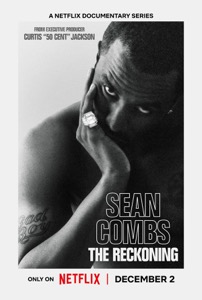
50 Cent’s new Netflix docuseries about Sean “Diddy” Combs is more than a headline-grabbing exposé; it is a meticulous breakdown of how power, celebrity, and silence can collide in the entertainment industry.
Across its episodes, the series traces Diddy’s rise, the allegations that followed him for years, and the shocking footage and testimonies now forcing a wider cultural reckoning.
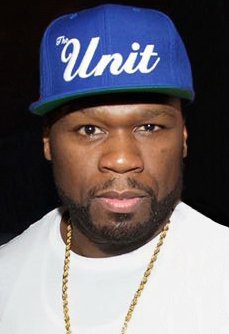
1. It Chronicles Diddy’s Rise and Fall – And How Power Warps Reality
The docuseries follows Combs from hitmaker and business icon to a figure facing serious criminal conviction and public disgrace, mapping out decades of influence, branding, and behind-the-scenes behavior. Watching that arc shows how money, fame, and industry relationships can shield someone from scrutiny and delay accountability, even as disturbing accusations accumulate.
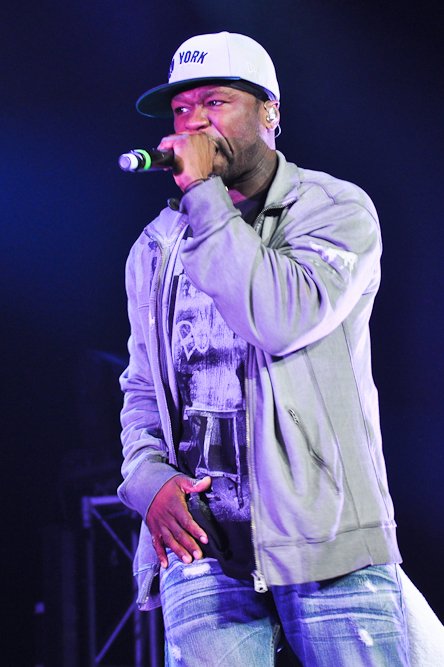
2. Never-Before-Seen Footage Shows How Narratives Are Managed
Exclusive footage of Diddy in private settings and in the tense days around his legal troubles reveals how carefully celebrity narratives are shaped, even in crisis.
Viewers can learn to question polished statements and recognize that what looks spontaneous in public is often the result of strategy, damage control, and legal calculation.
3. Survivors’ Stories Highlight Patterns of Abuse and Silence
Interviews with alleged victims, former staff, and industry insiders describe patterns of control, fear, and emotional or physical harm that were long whispered about but rarely aired in this detail. Their stories underline how difficult it is to speak out against a powerful figure, teaching viewers why many survivors delay disclosure and why consistent patterns across multiple accounts matter.
4. 50 Cent’s Approach Shows Storytelling as a Tool for Accountability
As executive producer, 50 Cent uses his reputation and platform to push a project that leans into uncomfortable truths rather than protecting industry relationships. The series demonstrates how documentary storytelling can challenge established power structures, elevate marginalized voices, and pressure institutions to respond when traditional systems have failed.
5. The Cultural Backlash Reveals How Society Handles Celebrity Accountability
Reactions to the doc—ranging from people calling it necessary and brave to others dismissing it as a vendetta or smear campaign—expose how emotionally invested audiences can be in defending or condemning a famous figure. Watching that debate unfold helps viewers see how fandom, nostalgia, and bias influence who is believed, and why conversations about “cancel culture” often mask deeper questions about justice and who is considered too powerful to fall.
Entertainment
South Park’s Christmas Episode Delivers the Antichrist

A new Christmas-themed episode of South Park is scheduled to air with a central plot in which Satan is depicted as preparing for the birth of an Antichrist figure. The premise extends a season-long narrative arc that has involved Satan, Donald Trump, and apocalyptic rhetoric, positioning this holiday episode as a culmination of those storylines rather than a stand‑alone concept.
Episode premise and season context
According to published synopses and entertainment coverage, the episode frames the Antichrist as part of a fictional storyline that blends religious symbolism with commentary on politics, media, and cultural fear. This follows earlier Season 28 episodes that introduced ideas about Trump fathering an Antichrist child and tech billionaire Peter Thiel obsessing over prophecy and end‑times narratives. The Christmas setting is presented as a contrast to the darker themes, reflecting the series’ pattern of pairing holiday imagery with controversial subject matter.
Public and political reactions
Coverage notes that some figures connected to Donald Trump’s political orbit have criticized the season’s portrayal of Trump and his allies, describing the show as relying on shock tactics rather than substantive critique. Commentators highlight that these objections are directed more at the depiction of real political figures and the show’s tone than at the specific theology of the Antichrist storyline.
At the time of reporting, there have not been widely reported, detailed statements from major religious leaders focused solely on this Christmas episode, though religion-focused criticism of South Park in general has a long history.
Media and cultural commentary
Entertainment outlets such as The Hollywood Reporter, Entertainment Weekly, Forbes, Slate, and USA Today describe the Antichrist arc as part of South Park’s ongoing use of Trump-era and tech-world politics as material for satire.
Viewer guidance and content advisory
South Park is rated TV‑MA and is intended for adult audiences due to strong language, explicit themes, and frequent use of religious and political satire. Viewers who are sensitive to depictions of Satan, the Antichrist, or parodies involving real political figures may find this episode particularly objectionable, while others may view it as consistent with the show’s long‑running approach to controversial topics. As with previous episodes, individual responses are likely to vary widely, and the episode is best understood as part of an ongoing satirical series rather than a factual or theological statement.
Entertainment
Sydney Sweeney Finally Confronts the Plastic Surgery Rumors

Sydney Sweeney has decided she is finished watching strangers on the internet treat her face like a forensic project. After years of side‑by‑side screenshots, “then vs now” TikToks, and long comment threads wondering what work she has supposedly had done, the actor is now addressing the plastic surgery rumors directly—and using them to say something larger about how women are looked at in Hollywood and online.

Growing Up on Camera vs. “Before and After” Culture
Sweeney points out that people are often mistaking normal changes for procedures: she grew up on camera, her roles now come with big‑budget glam teams, and her body has shifted as she has trained, aged, and worked nonstop. Yet every new red‑carpet photo gets folded into a narrative that assumes surgeons, not time, are responsible. Rather than walking through a checklist of what is “real,” she emphasizes how bizarre it is that internet detectives comb through pores, noses, and jawlines as if they are owed an explanation for every contour of a woman’s face.
The Real Problem Isn’t Her Face
By speaking up, Sweeney is redirecting the conversation away from her features and toward the culture that obsesses over them.
She argues that the real issue isn’t whether an actress has had work done, but why audiences feel so entitled to dissect her body as public property in the first place.
For her, the constant speculation is less about curiosity and more about control—another way to tell women what they should look like and punish them when they do not fit. In calling out that dynamic, Sweeney isn’t just defending herself; she is forcing fans and followers to ask why tearing apart someone else’s appearance has become such a popular form of entertainment.










